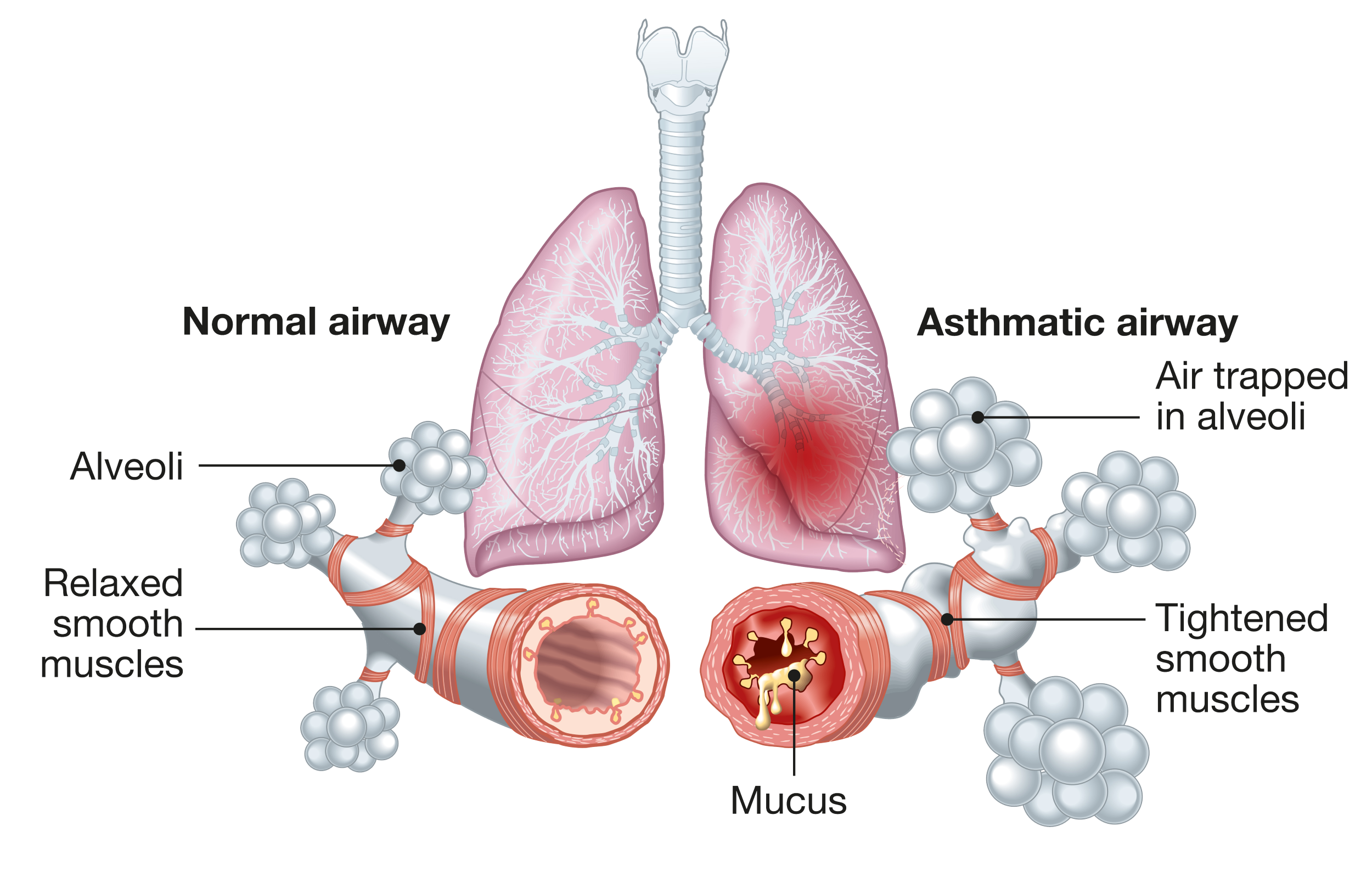Do I have asthma?
Asthma | 24 September 2024
An estimated almost 300 million people live with asthma worldwide1. In fact, asthma is such a common condition that we all are likely to know at least one person who has it.
Asthma can arise at any time and affect anyone at any age. While it’s not completely known why some people are more susceptible to asthma than others, there are several risk factors, such as allergies, overweight, air pollution, smoking or being exposed to secondhand smoke2. Also, having a parent or sibling with asthma could increase your risk for asthma3.
Asthma is not just a bit of trouble breathing, it is a chronic inflammation of the airways4. This inflammation causes airways to be sensitive to different triggers like cold air, smoking or exercise. But how do you know if you have asthma?

What are the symptoms of asthma?
The only way to be certain you have asthma is with a doctor’s diagnosis. Yet, there are a few symptoms to look for that might point to asthma. Shortness of breath, feeling tightness in your chest, or coughing and wheezing are some of the most common symptoms4.
These symptoms vary from person to person and are seldom persistent – they can come and go, appearing after a spurt of activity or sports, or worsening when you’ve got a flu or a cold. Coughing will likely be worse at night or early in the morning and the cough is dry. Sometimes prolonged cough after having a flu may be a sign of asthma. Difficulty breathing can also come on after being triggered by exposure to an allergen, like saliva or dander from an animal, pollen or dust or after your airway comes into contact with some other trigger, like tobacco smoke4.
How is asthma diagnosed?
If you’ve been experiencing shortness of breath after exercise or are frequently having trouble breathing, it’s a good idea to see your doctor and get tested for asthma. Your doctor will likely conduct lung function . This means measuring your lung capacity using either a spirometry test or peak flow measurements that are specifically used for diagnosing asthma. Your doctor might also ask you to measure your peak flow at home to monitor how the medication is working.
Is it treatable?
The good news is that your asthma can be treated. After your initial diagnosis, your doctor determines the best treatment option for managing your asthma symptoms. Together you can create an action plan that might include combining the medication with lifestyle adjustments, such as quitting smoking or increasing activity and monitoring the wellbeing of your lungs.
It’s essential to start taking care of your lungs with a regular controller medication, inhaled corticosteroids. You might also need to keep a reliever inhaler with you for situations when your asthma isn’t under control and you experience shortness of breath. You need to learn and maintain the proper technique for using your inhaler to ensure you’re getting the most out of your medication.
The aim of the treatment is to lessen your symptoms, progress of the disease and prevent exacerbation periods. Asthma should not interfere your daily life, work and you should be able to exercise with your preferred way. If inhaled corticosteroids don’t keep your symptoms away there are additional medication that can help you like long-acting relievers or leukotriene antagonist. Sometimes in biological treatments may be considered as additional treatment. If your current treatment is not helping you enough, please talk to your doctor to find the right treatment options.
While having asthma may require some lifestyle adjustments, by keeping your symptoms under control with the right treatment, asthma won’t prevent you from living a normal life.
References:
- World Health Organization | Asthma https://www.who.int/news-room/fact-sheets/detail/asthma (Accessed Aug 2024)
- Toskala E, Kennedy DW. Asthma risk factors. Int Forum Allergy Rhinol. 2015;5 Suppl 1:S11-6.
- Paaso EM, Jaakkola MS, Rantala AK. et al. Allergic diseases and asthma in the family predict the persistence and onset-age of asthma: a prospective cohort study. Respir Res. 2014;15:152.
- Global Initiative for Asthma (GINA). Global strategy for asthma management and prevention 2024 https://ginasthma.org/2024-report/
CORP-RESP-1870
Orion Corporation is a globally operating Finnish pharmaceutical company. We develop, manufacture and market human and veterinary pharmaceuticals and active pharmaceutical ingredients. The dry powder inhaler developed at Orion is in the core of our respiratory therapy area.



